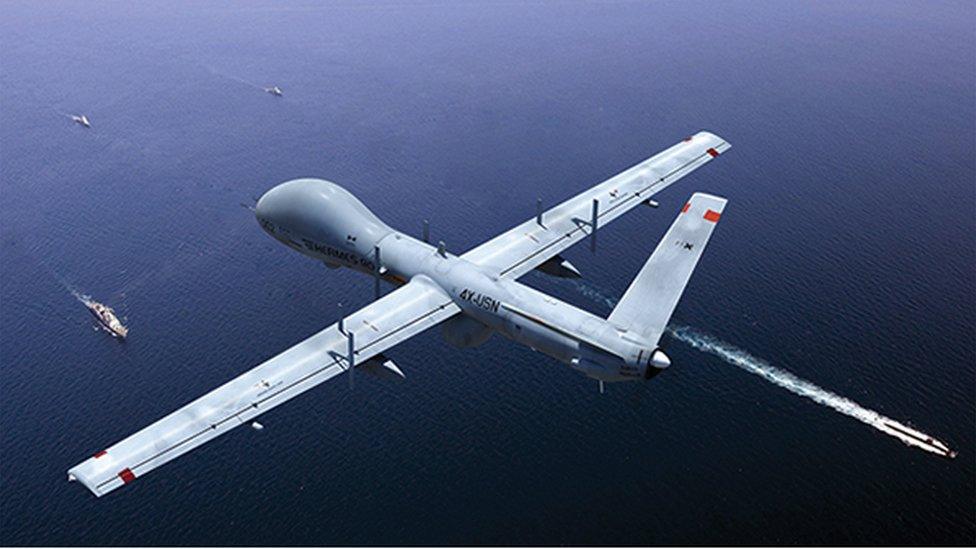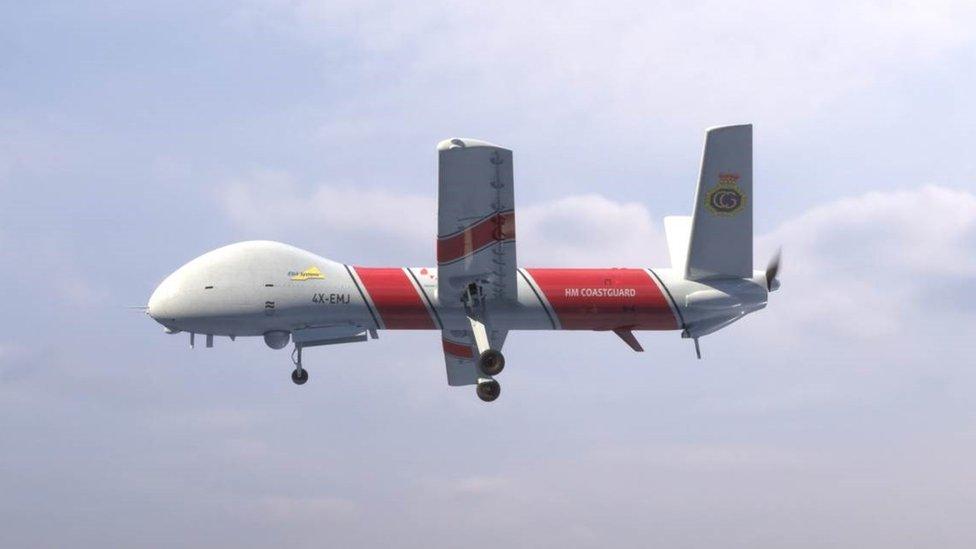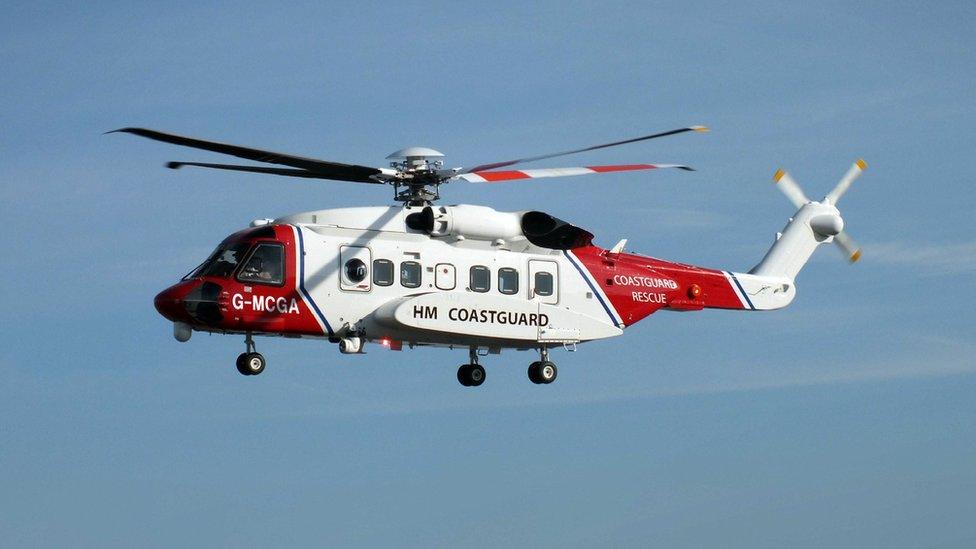Coastguard plans to add drones to air fleet
- Published

The coastguard has already said it plans to trial the Hermes 900 unmanned aircraft
Drones are expected to play a role in coastguard search and rescue (SAR) operations in the near future.
The Maritime and Coastguard Agency (MCA) wants to make greater use of the technology as part of a new SAR contract to be awarded in 2024.
The contract also covers the continued provision of rescue helicopters, including those based in Scotland, and search planes.
Private aviation companies operate the aircraft on the MCA's behalf.
The Bristow Group took over the helicopter search and rescue role in 2015.
The £1.6bn, 10-year deal ended 70 years of search and rescue from the RAF and Royal Navy. In Scotland, Bristow has bases at Sumburgh, Stornoway, Inverness and Prestwick.
The MCA fixed wing aircraft are operated by 2Excel Aviation and are used in monitoring for pollution and illegal fishing.
But the MCA said under the new contract, called UKSAR2G, it planned to make greater use of planes in search and rescues, and also new innovations such as drones.
The coastguard said unmanned aircraft could potentially visit rescue sites ahead of air, sea or land-based recovery teams.
Images and other information gathered by drones could help develop the emergency services response to a situation.

A mock up of a coastguard unmanned aircraft
Earlier this year, the coastguard said it would be trialling unmanned aircraft, including the 1.2 tonne Hermes 900 Maritime Patrol, which has a wing-span of 15m (49ft).
The MCA has begun early discussions with companies potentially interested in the contract.
Damien Oliver, the coastguard's commercial and programme director, said this work would continue to be done remotely while lockdown restrictions remained in place.

The new contract, UKSAR2G, includes search and rescue helicopter provision
Scottish mountain rescue teams are among organisations the MCA is liaising with over the future shape of search and rescue.
Dave Wright, leader of Tweed Valley Mountain Rescue Team and Scottish Mountain Rescue's representative on helicopter provision at meetings with the coastguard, said the volunteer service had regular engagement with the coastguard and it was looking forward to "constructive dialogue" on UKSAR2G.
He said: "Scottish Mountain Rescue expect the next generation search and rescue helicopter service to be fit for the Scottish mountains through the use of best in class technology, as well as being able to adapt and utilise technological advances over the life of the contract.
"Most importantly we expect the service to be delivered on a casualty centric basis."
Mr Wright said this meant that rescue teams had to be fully trained in helicopter operations and they knew their kit, such as stretchers, were compatible with the aircraft.
Also, that the coastguard would work with mountain rescue teams "as partners" in any rescue until it was concluded.